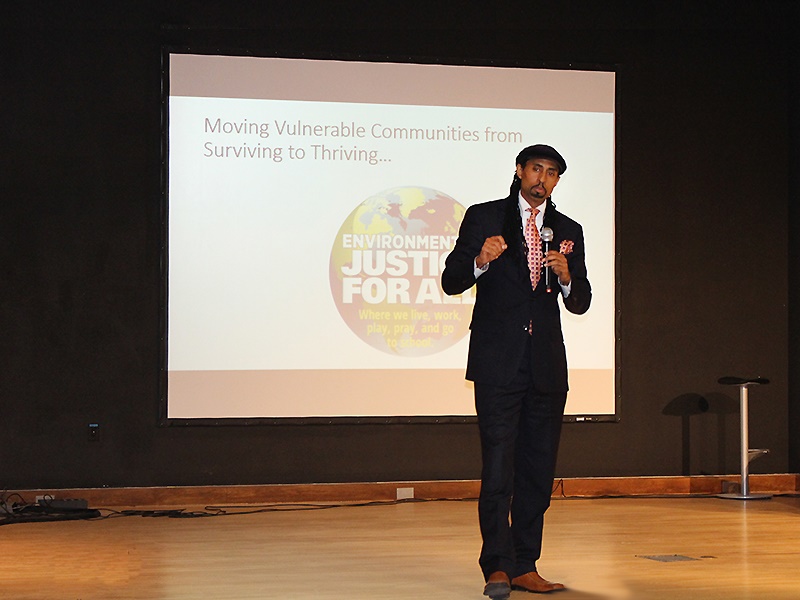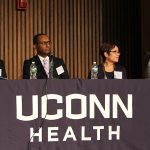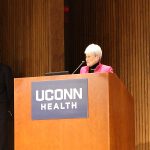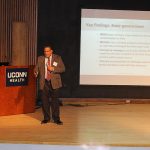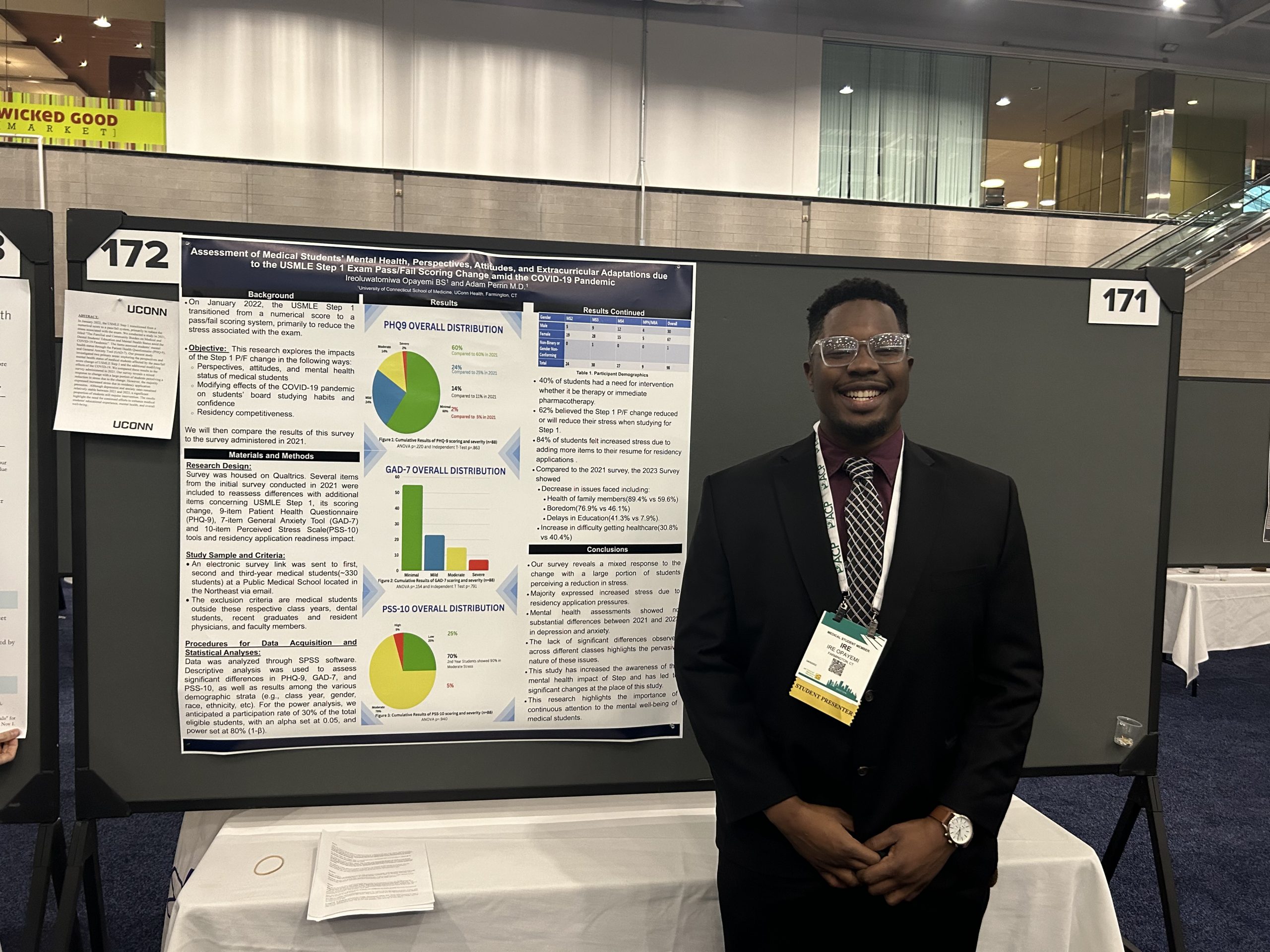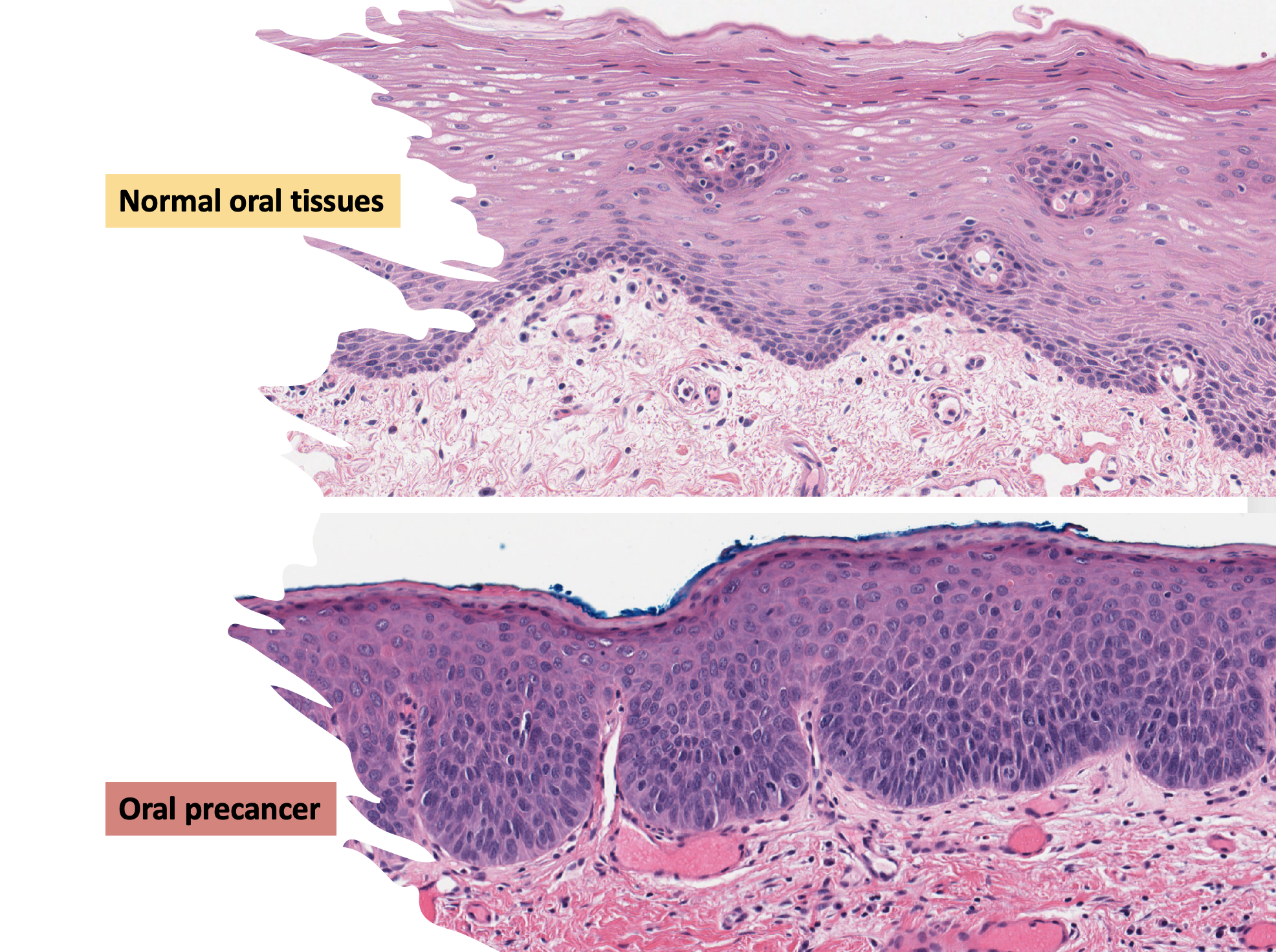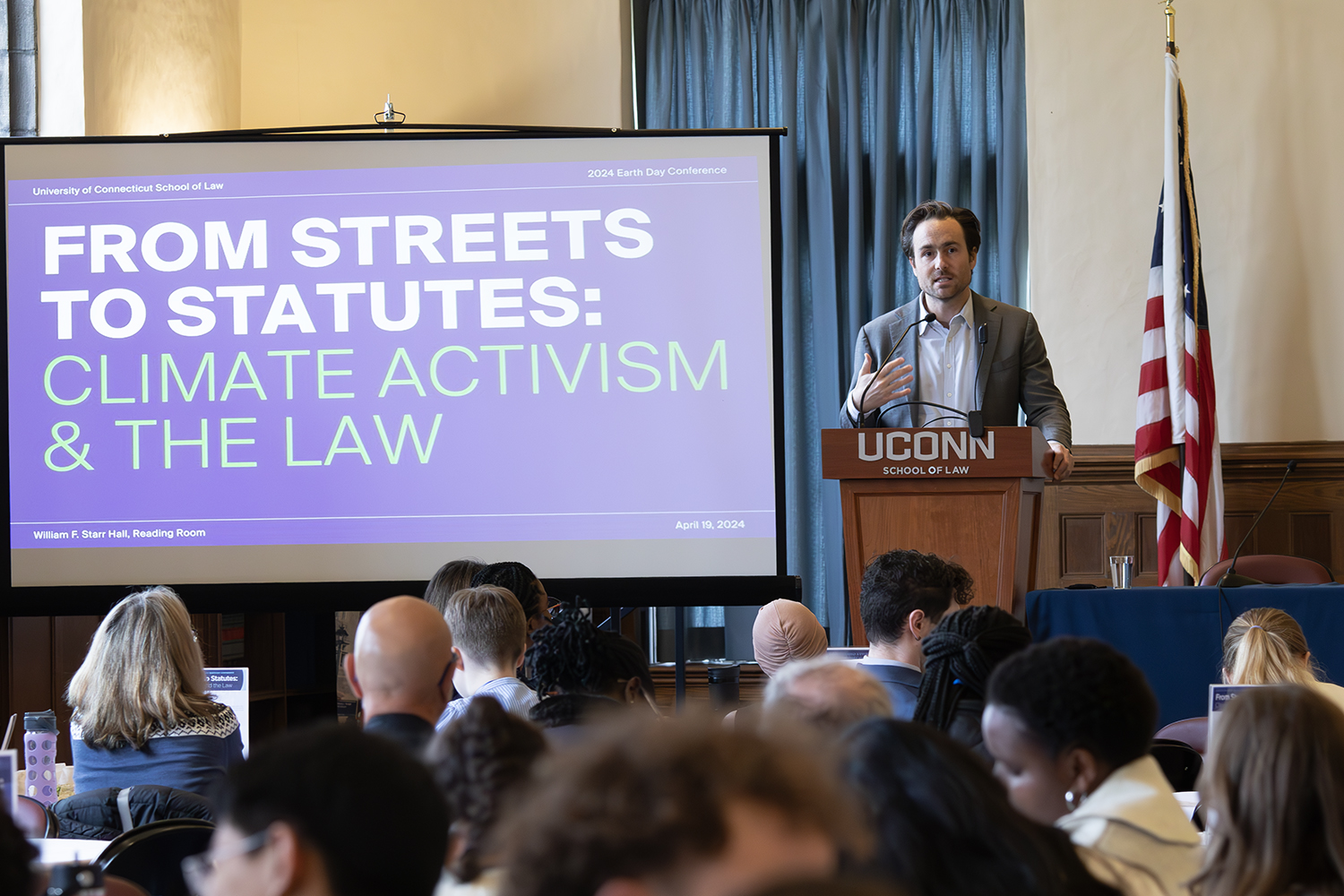The role that geography plays in health disparities was one of the central topics at the second annual National Health Disparities Elimination Summit, recently held at UConn Health.
The two-day summit, Oct. 28 and 29, attended by nearly 200 people, examined how some physical, healthcare and social environments may create or exacerbate health disparities, especially in African-American and Latino communities.
“Your zip code should not determine how long you live,” said Mustafa Santiago Ali, senior advisor at the U.S. Environmental Protection Agency (EPA) Environmental Justice & Community Revitalization Division. “For me it’s all about moving vulnerable communities from surviving to thriving.”
Among the public health issues discussed at the summit, “Living in America Today: Transforming Environments to Eliminate Health Disparities,” was the water crisis in Flint, Mich. Dr. Lawrence Reynolds, president & CEO, Mott Children’s Medical Center and a member of the Flint Water Advisory Task Force, addressed the ongoing water crisis there.
“The ultimate purpose of this summit is to move the needle toward the actual elimination of health disparities,” said Dr. Linda Barry, chief operating officer for the Connecticut Institute for Clinical and Translational Science that hosted the event in collaboration with the W. Montague Cobb/NMA Health Institute.
Some of the other key speakers included Dr. Gary Rhule, director of health, City of Hartford Health Department; Dr. Richard Allen Williams, president-elect, National Medical Association and founder, Association of Black Cardiologists; and Dr. Joan Y. Reede, dean, Diversity and Community Partnership and professor of medicine, Harvard Medical School.
“Where we live matters,” noted UConn Health’s Dr. Cato T. Laurencin, CEO of CICATS. “We encourage all to work in unison to improve health outcomes and accept the challenges to improve lives here in Connecticut and on a national level.”
The summit was sponsored by the Connecticut Legislative Black & Puerto Rican Caucus.
“We hope this event becomes a springboard,” said Laurencin. “I am confident together we will overcome the challenges.”
Ali echoed that message in his remarks. “How blessed we truly are. We have an opportunity to help make change,” he said.
